Deezer and Tidal are two of Spotify’s most formidable rivals while Spotify is the most widely used music streaming service worldwide. You can select which music streaming service is superior and which you should pay for in 2024 by thoroughly comparing Spotify VS Deezer VS Tidal.
Listeners can choose from several music streaming services, but these three are vying for the top slot. In this article, we’ll concentrate on Deezer and Tidal’s competition with Spotify. There is the industry leader in music streaming on one end, and two underdogs that are quickly gaining ground on the other. Let’s examine each factor to determine which is preferable: Spotify VS Deezer VS Tidal.
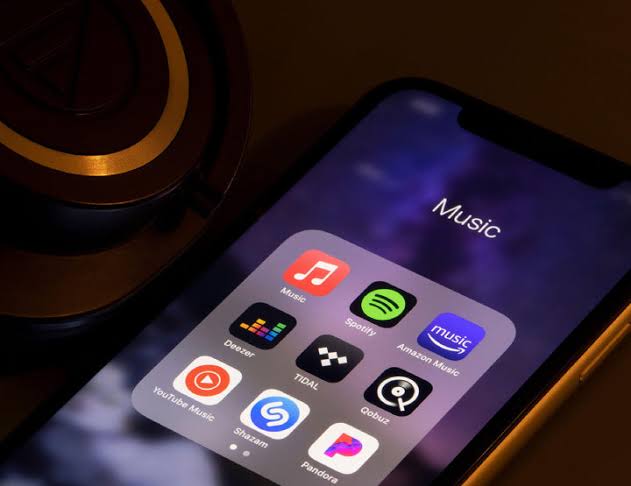
Spotify VS Deezer VS Tidal: A Detailed Comparison
Spotify will be the top result when searching for the best music streaming applications. However, several factors prompt people to search for Spotify substitutes. Due to the intrusive advertisements and expensive subscription fees, some users look for alternatives to Spotify. They will frequently switch to streaming services like Deezer and Tidal.
However, are Deezer and Tidal superior to Spotify? If you want to move to them this year and say goodbye to Spotify, it’s worth learning about.
1. Overview
Spotify: Spotify is a leading digital music streaming platform that has revolutionized the way people discover, listen to, and share music. Launched in 2008, Spotify offers a vast catalog of millions of songs from various genres and artists worldwide. It provides users with personalized recommendations, playlists, and radio stations based on their tastes and listening habits.
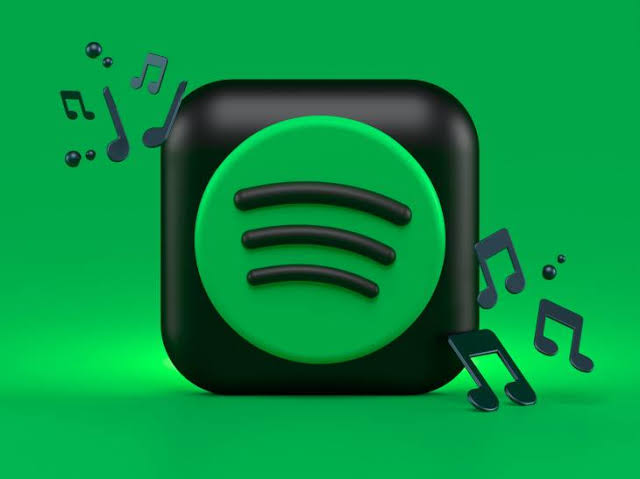
With both a free, ad-supported version and a premium subscription option, Spotify has become immensely popular, boasting over 517 million active users as of May 2023. Beyond music, the platform has expanded its content to include podcasts, making it a comprehensive destination for audio entertainment.
Deezer: Deezer is a renowned music streaming platform that has become a go-to destination for music lovers worldwide. Launched in 2007, Deezer offers an extensive music library with millions of songs across various genres and languages. With its user-friendly interface and personalized features, Deezer allows users to discover new music, create playlists, and follow their favorite artists.
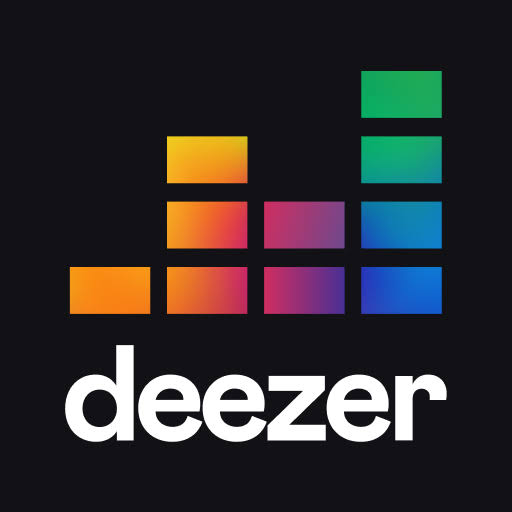
The platform’s advanced recommendation algorithms suggest songs and artists based on individual listening habits and preferences. As of March 2023, Deezer had more than 9.3 million paid customers, making it one of Spotify’s main rivals. There are currently free and premium versions of Deezer accessible in more than 180 countries.
Tidal: Tidal, introduced in 2014, stands out as a music and video streaming platform committed to delivering premium audio quality and exclusive content to its subscribers. What sets Tidal apart is its focus on providing lossless audio quality, catering to the preferences of audiophiles and music enthusiasts who prioritize superior sound fidelity in their streaming experience.
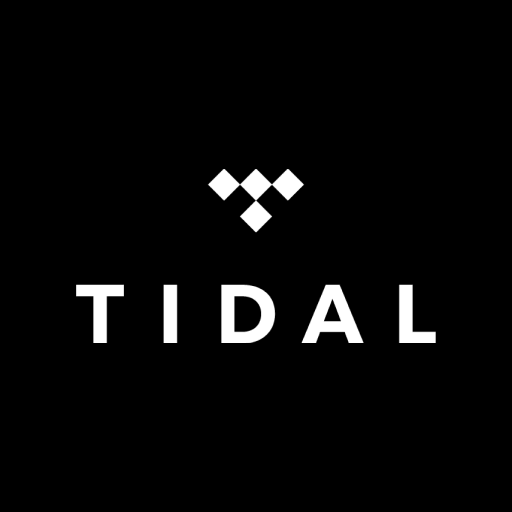
The platform boasts an extensive library of over 70 million songs and 250,000 music videos, including a vast collection of exclusive releases and live performances from renowned artists. With its focus on audio quality and artist-centric approach, Tidal has carved out a niche in the highly competitive music streaming industry.
2. Music Discovery
Spotify, Deezer, and Tidal are all popular music streaming platforms that offer a wide range of music for users to discover and enjoy. When it comes to music discovery, each platform has its unique features and approach.
1. Spotify
Spotify is known for its robust music recommendation algorithms, which are based on user preferences, listening history, and curated playlists. It offers a personalized “Discover Weekly” playlist, which updates every week with new songs tailored to the user’s taste.
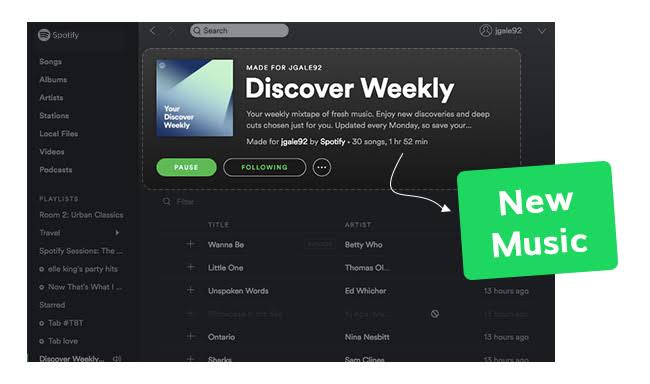
Spotify also provides “Release Radar,” a playlist that highlights newly released tracks from artists the user follows, and “Daily Mixes,” which are genre-specific playlists based on the user’s listening habits. Additionally, Spotify’s “Browse” section offers a variety of curated playlists and recommendations based on mood, genre, and popular trends.
2. Deezer
Deezer focuses on offering a diverse music library and curated playlists. It provides personalized recommendations based on the user’s listening history and favorite genres, as well as “Flow,” a unique feature that creates a personalized playlist based on the user’s taste.
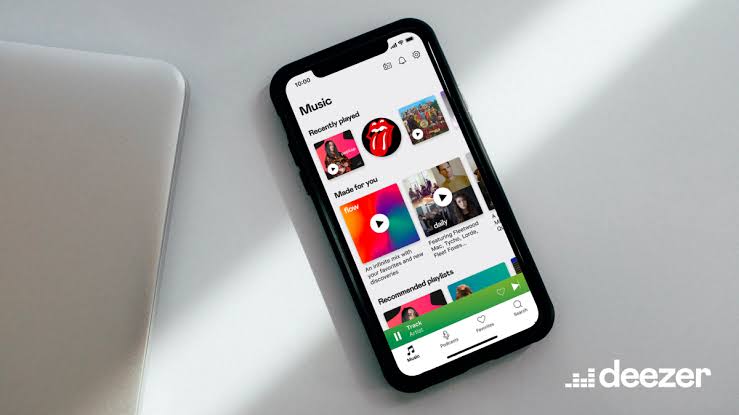
Deezer also has a dedicated “Explore” section, where users can find curated playlists and recommendations based on mood, activity, and genre. It also offers “Mixes” that combine favorite tracks with discoveries.
3. Tidal
Tidal distinguishes itself by emphasizing high-quality audio and exclusive content. It offers a wide range of music genres and provides editorially curated playlists, including “My Mix” which combines user favorites with recommended tracks.
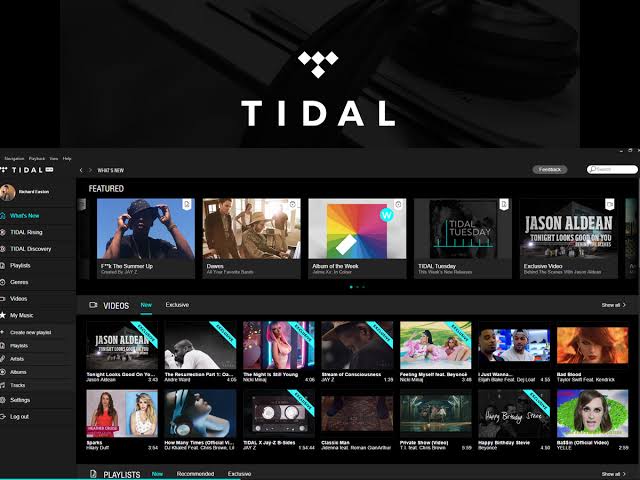
Tidal also features artist-curated playlists and exclusive releases, giving users access to music that may not be available on other platforms. The platform emphasizes Hi-Fi audio quality, offering lossless audio streaming options for audiophiles.
Winner: Overall, Spotify, Deezer, and Tidal all excel in music discovery but approach it in slightly different ways. Spotify focuses on personalized recommendations and user-generated playlists, Deezer offers diverse content with curated playlists, and Tidal emphasizes high-quality audio and exclusive releases. In the end, there is a tie between these three platforms for the greatest platform for music discovery.
3. Content Variety
Spotify, Deezer, and Tidal are three popular music streaming platforms that offer a wide range of content to their users. Each platform has its unique features and focuses on providing a diverse selection of music.
1. Spotify:
Spotify is widely regarded as the industry leader and has the largest music library among the three platforms. It boasts over 100 million songs, and 3.6 million podcasts, and covers a broad range of genres, including mainstream pop, rock, hip-hop, electronic, and many more.
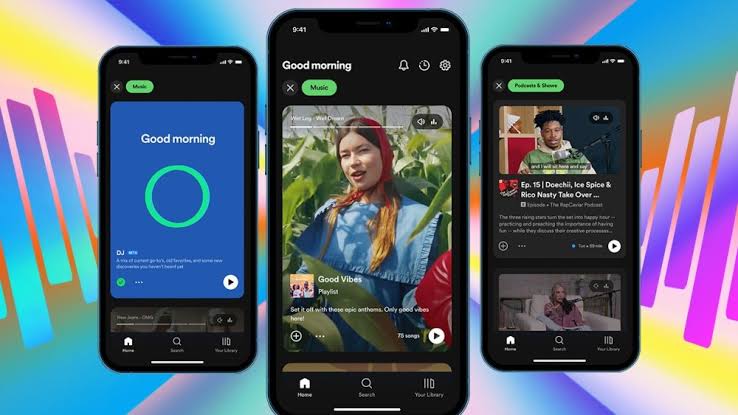
Spotify also offers a vast collection of playlists curated by both its editorial team and users, making it easy to discover new music.
2. Deezer
Deezer also offers an extensive music catalog with over 90 million tracks. Deezer is known for its focus on international and regional content, making it a good choice for users interested in discovering music from different cultures and languages.
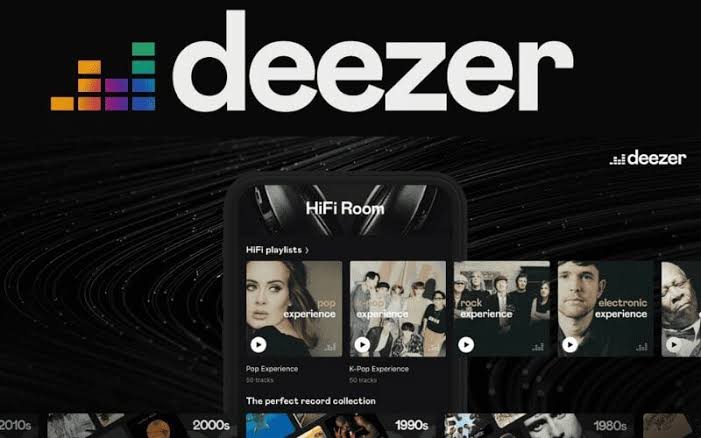
It offers a variety of genres and playlists, including personalized recommendations based on the user’s listening habits.
3. Tidal
Tidal differentiates itself by focusing on high-quality audio and providing exclusive content. It offers a premium subscription tier that includes lossless audio streaming, which is ideal for audiophiles who value superior sound quality.

Tidal also features a significant collection of exclusive content, such as albums, music videos, and documentaries from well-known artists.
Winner: In terms of content variety, all three platforms have a vast selection of music from different genres and artists. However, Spotify is the winner here as it offers the widest range of music due to its large user base and extensive licensing agreements.
4. Interaction design and functionality
While Spotify, Deezer, and Tidal share some similarities, there are differences in their user interfaces and functionality. Here’s a brief description of each:
1. Spotify
Spotify’s user interface is known for its simplicity and ease of use. The app features a clean design with a focus on playlists and personalized recommendations. Spotify’s algorithmic recommendations, like Discover Weekly and Release Radar, are highly regarded by users.

It also offers social features, allowing users to follow friends and share music. Spotify has a free ad-supported version, as well as a premium subscription that removes ads, enables offline listening, and provides higher audio quality.
2. Deezer
Deezer has a slightly different approach to its user interface. It emphasizes its “Flow” feature, which creates a personalized playlist based on a user’s listening habits. Deezer also offers curated playlists and a “Mixes” section that includes mood-based playlists and genre-specific mixes.
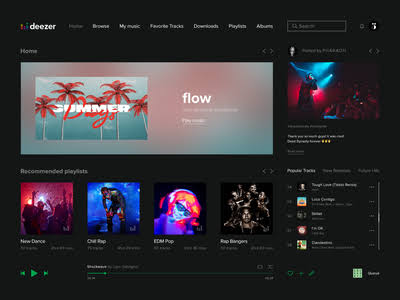
The user interface has a sleek design, and the platform places importance on music discovery and exploration. Deezer provides a free tier with limited features and a premium subscription that unlocks additional benefits like ad-free listening and offline mode.
3. Tidal
Tidal’s user interface is elegant and intuitive, focusing on album artwork and artist imagery. Tidal boasts an extensive catalog of music and exclusive content, including high-resolution audio and music videos.
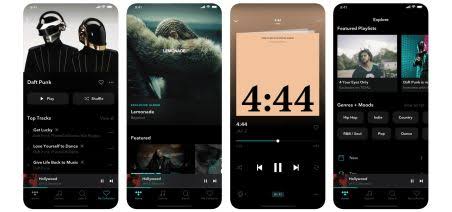
The platform provides curated playlists, recommended albums, and a personalized “My Mix” feature. Tidal offers a standard subscription with high-quality audio and a premium subscription with lossless and hi-res audio options.
Winner: Spotify is the winner in this aspect as it provides the best user-friendly interface with a strong emphasis on playlists and recommendations.
5. Streaming Quality
Spotify, Deezer, and Tidal are three popular music streaming services that offer a wide range of music to their subscribers. When it comes to streaming quality, each platform has its unique offerings.
1. Spotify
In terms of streaming quality, Spotify offers three tiers: Free, Premium, and Spotify HiFi.
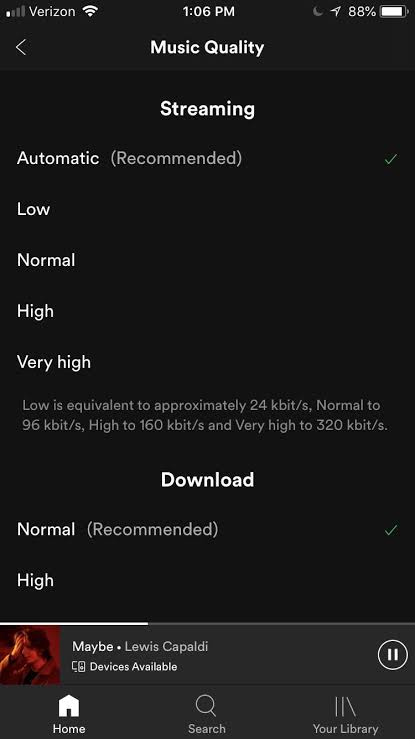
1. Free: The free tier streams music at a maximum of 160 kbps using the Ogg Vorbis codec, which provides decent quality but with some compression artifacts.
2. Premium: Premium users can enjoy higher streaming quality, with the option to stream music at 320 kbps using the Ogg Vorbis codec. This higher bitrate results in better audio quality and clarity.
3. Spotify HiFi: This high-fidelity tier is still relatively new and promises lossless CD-quality audio streaming. It aims to deliver music in a lossless FLAC format, ensuring an even higher level of audio fidelity.
2. Deezer
Deezer offers multiple streaming qualities across its various plans:
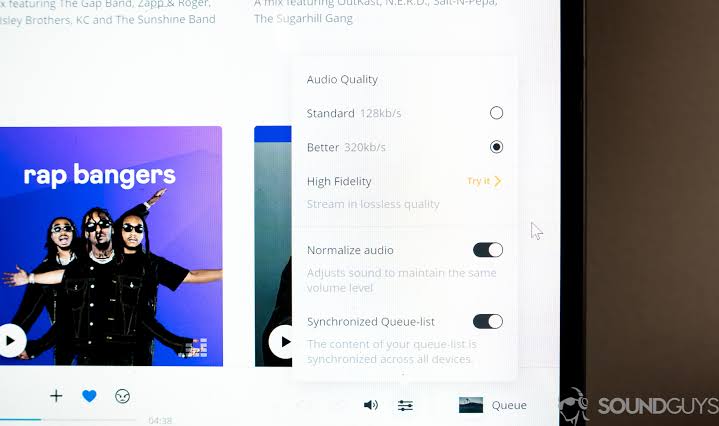
1. Free: The free tier of Deezer streams music at 128 kbps in the AAC format. This lower bitrate can result in a slightly compressed sound.
2. Deezer Premium: Premium users can stream music at 320 kbps in the AAC format, offering higher-quality audio.
3. Deezer HiFi: The audio quality is increased to 1411 kbps on Deezer’s HiFi tier. Deezer also offers 360 Reality Audio Tracks in its HiFi plan. In this plan, music is delivered in FLAC format, ensuring top-notch audio fidelity.
3. Tidal
Tidal offers two main tiers, both of which provide superior audio quality compared to other platforms.
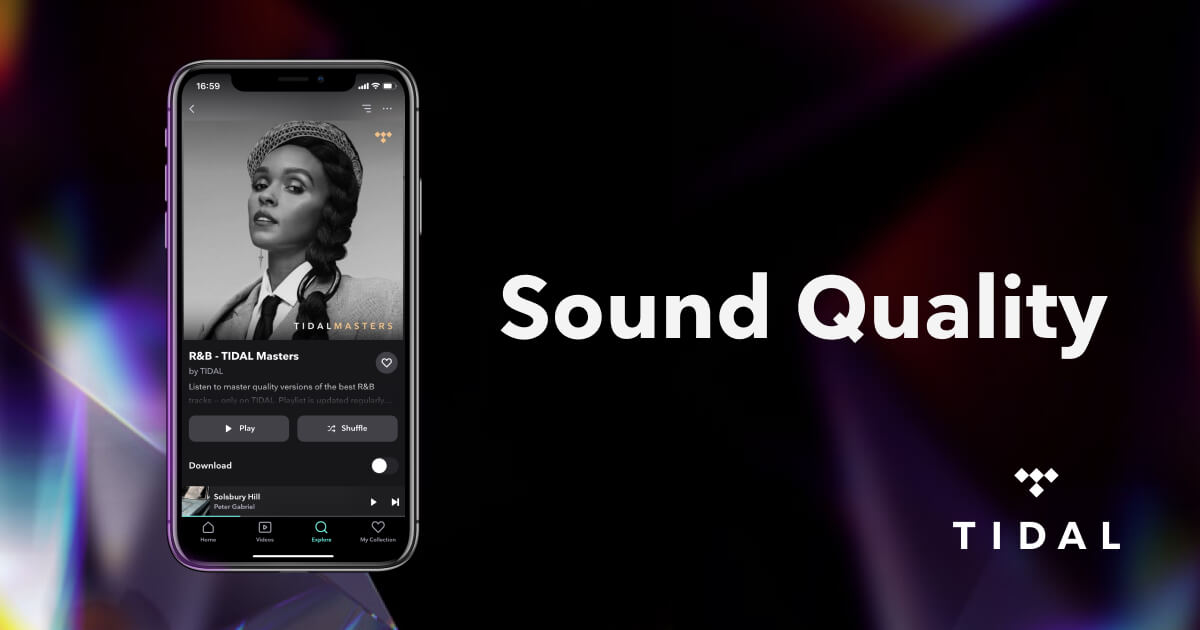
1. Tidal Premium: Tidal Premium streams music at 320 kbps using the AAC format. It offers a higher bitrate than the free versions of Spotify and Deezer, resulting in better audio quality.
2. Tidal HiFi: Tidal HiFi is the flagship tier that sets Tidal apart. It provides lossless audio streaming at a CD-quality bitrate of 1411 kbps, utilizing FLAC format. Tidal HiFi subscribers can experience high-fidelity audio with detailed sound reproduction.
Winner: While all three services offer varying streaming quality options, Tidal is the winner here as it places a stronger emphasis on high-fidelity audio with its lossless HiFi tier. Spotify and Deezer offer lower-quality options for free users but provide higher-quality streaming for their paying subscribers.
6. Pricing Plans
Here’s a short description of Spotify, Deezer, and Tidal’s pricing plans:
1. Spotify
Spotify has the following plans with these prices:
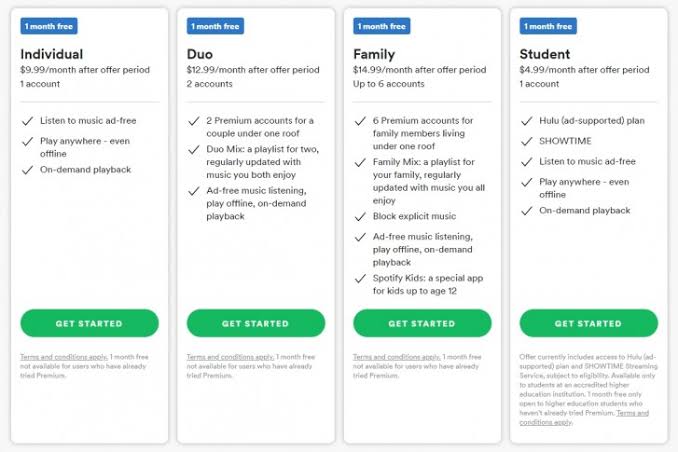
1. Free Plan: Spotify offers a free, ad-supported version with limited features.
2. Premium Plan: For those who want an enhanced experience, Spotify offers a premium subscription priced at $9.99 per month. The premium plan removes ads, allows offline listening, offers higher audio quality, and enables unlimited skips.
3. Family Plan: Spotify offers a family plan for $15.99 per month, allowing up to six family members to enjoy premium features under one subscription.
4. Student Plan: Spotify also offers a Spotify student discount at $4.99 per month.
2. Deezer
Deezer has the following plans with these prices:
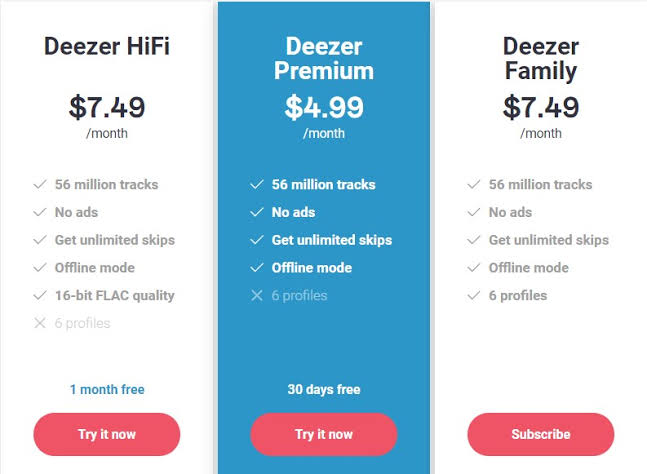
1. Free Plan: Deezer offers a free version supported by ads, similar to Spotify.
2. Premium Plan: The Deezer premium plan costs $10.99 per month and provides ad-free listening, offline mode, and higher audio quality.
3. Family Plan: Deezer offers a family plan for $17.99 per month, accommodating up to six profiles.
4. HiFi Plan: Deezer offers a HiFi plan for audiophiles at $19.99 per month, which provides lossless, CD-quality audio.
5. Student Plan: Deezer also offers a student plan capped at $5.99 per month.
6. Annual Plan: Deezer is also available annually for $99.90 per month.
Deezer costs a few dollars more than Spotify, as is evident, but makes up the difference with its annual plans. While a year’s worth of Spotify subscription costs about $120, a year’s worth of Deezer subscription costs just $100. This reduces the cost of the subscription by about $20.
3. Tidal
Tidal has the following plans with these prices:
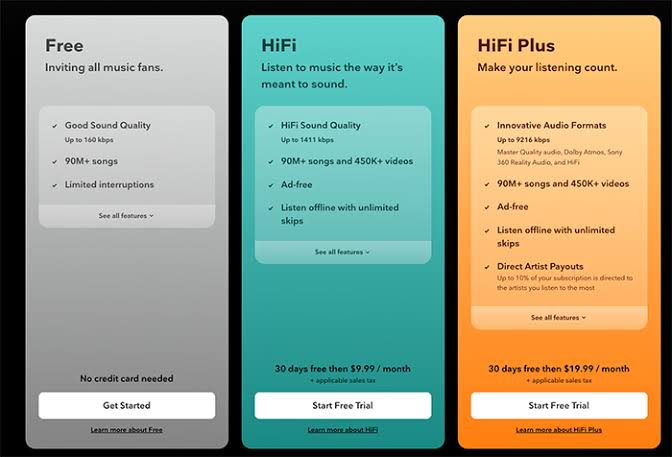
1. Premium Plan: The Tidal Premium Plan costs $9.99 per month and offers standard sound quality.
2. HiFi Plan: For those seeking better audio fidelity, Tidal offers a HiFi subscription for $19.99 per month, which provides lossless, CD-quality audio.
3. Family Plan: Tidal has a family plan priced at $14.99 per month.
4. HiFi Family Plan: Tidal also has a HiFi family plan priced at $29.99 per month. Up to six accounts are covered in this plan.
5. Masters Plan: Tidal also offers a unique plan called Tidal Masters for $24.99 per month, which grants access to their extensive library of high-resolution audio files.
Winner: The best pricing plan depends on your specific requirements. If you’re looking for a basic premium experience, Spotify and Deezer offer similar pricing options, however, Deezer is a little more expensive than Spotify. If audio quality is a top priority for you, Tidal’s HiFi plan stands out with its lossless and high-fidelity audio offerings.
Spotify VS Deezer VS Tidal: Which One to Choose?
You may listen to your favorite music on Spotify, Deezer, and Tidal, three fantastic music streaming services. However, if you want to buy a premium subscription, you must choose a side. The data clearly show that Spotify is currently superior to Deezer and Tidal. However, if audio fidelity is essential to you, Tidal or Deezer HiFi plans may be worth considering.
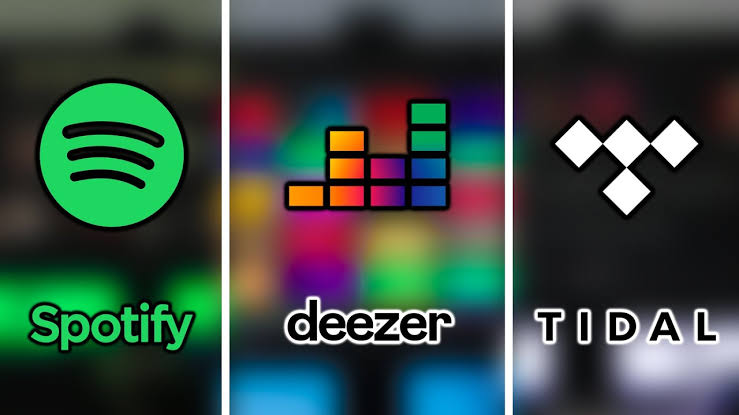
Although Deezer and Tidal still have a long road ahead before surpassing Spotify, it appears they are headed in the right direction. To compete with Spotify, they only need to make a few minor platform customizations, set competitive prices, and develop an effective marketing plan.
As of now, Spotify is the current and defending champion when it comes to the greatest music streaming service. Without any hesitation, you may get Spotify Premium or sign up for a free Spotify trial. Deezer and Tidal are also good options if you’re seeking the finest Spotify substitute. Using them won’t be something you regret.
Conclusion
When it comes to the battle between Spotify vs Deezer vs Tidal, it is evident that each platform offers unique features and benefits to music enthusiasts. Spotify stands out as the industry leader, providing a vast music library, a user-friendly interface, and personalized playlists. Deezer excels in its audio quality and extensive international music collection, while Tidal distinguishes itself with its high-fidelity audio and exclusive artist collaborations.
Ultimately, the choice between these three platforms depends on individual preferences, such as music quality, regional availability, and interface design. Regardless of the chosen platform, music lovers can enjoy a rich and immersive listening experience with any of these services.
- Tricks to Unblur Course Hero Answers for Free - June 3, 2024
- Spotify Vs Deezer Vs Tidal: Which Is Better? - May 31, 2024
- Top 9 VR Action Games in 2024 - May 31, 2024